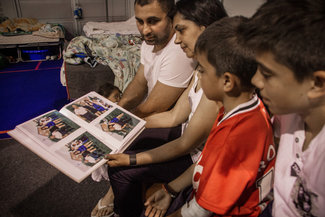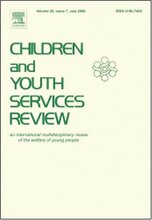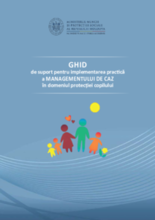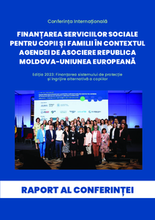

Displaying 111 - 120 of 1075
Anastasia was living in Zaporizhzhia and was pregnant with Dorothy and Charlie’s baby. Then Russia invaded and she knew she had to escape to save the child
Judge Raul Pangalangan International Criminal Court Judge (2015 – 2021)
Daniela Mamaliga, Director of Partnerships for Every Child, presents the findings and conclusions of a comprehensive 2022 financial assessment conducted by CTWWC in six residential institutions. The financial assessments aimed to inform political decisions on the future of the six institutions, including their transformation/reorganization plans. Ms. Mamaliga highlights that though the average annual cost for caring for a child is increasing in all six institutions, even as number of children and staff is decreasing in some of them.
“When we talk about equity and efficiency and what is right for children, when we provide services to families and children, we need to make sure that we are not just investing wisely, but that we are reaching
As an experienced social worker and practice lead at Social Work Scotland, Vivien Thomson shares valuable insights underscoring the importance of investing in the social service workforce to drive meaningful care reform. Drawing from lessons learned in Scotland's Getting it Right for Every Child (GIRFEC) policy framework, Ms. Thomson, illuminates the critical role of social workers and the need to empower them as the glue that holds together multi-agency teams.
Former World Bank Economist and President of Maestral International, Philip Goldman, makes a compelling, data-driven case for the need for a paradigm shift in how Moldova approaches the financing of care and protection of its children.
This article analyzes the integration process of children returned from ISIS territory in three regions of the Russian North Caucasus from where the largest number of ISIS fighters with Russian citizenship originated. Following the concepts of “reintegration of returned migrants” and “cultural citizenship”, it explicates the role of key actors in the processes of adaptation and integration of children and their families, as well as analyzes the nature of the barriers they overcome to restore their lost civil status and identity.
Case management is used with both families at risk of separation and those where children have already separated and are in the process of being reintegrated, including biological family or placed into an alternative family (e.g., foster or kinship). The end goal of case management is that children are safe and nurtured within a family that is able to care for them, and access needed services that address risks and increase resilience.
Ghidul de suport pentru implementarea practică a Managementului de caz în domeniul protecției copilului este destinat angajaților structurilor teritoriale de asistență socială.
Conferința internațională “Finanțarea serviciilor sociale pentru copii și familii în contextul Agendei de Asociere Republica Moldova – Uniunea Europeană” este un eveniment anual organizat sub egida Parlamentului Republicii Moldova în colaborare cu



